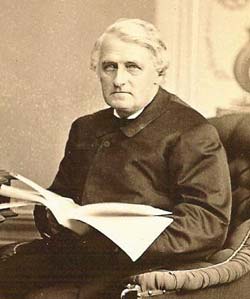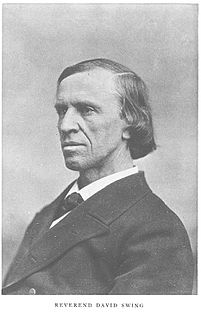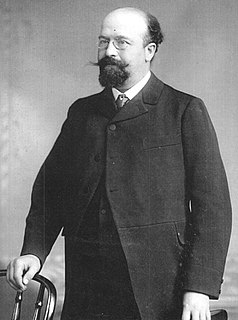A Quote by Austin Phelps
Christianity is the only system of faith which combines religious beliefs with corresponding principles of morality. It builds ethics on religion.
Related Quotes
Everywhere the tendency has been to separate religion from morality, to set them in opposition even. But a religion without morality is a superstition and a curse; and anything like an adequate and complete morality without religion is impossible. The only salvation for man is in the union of the two as Christianity unites them.
When one gives up the Christian faith, one pulls the right to Christian morality out from under one's feet. This morality is by no means self-evident. Christianity is a system, a whole view of things thought out together. By breaking one main concept out of it, the faith in God, one breaks the whole. It stands or falls with faith in God.
Today courts wrongly interpret separation of church and state to mean that religion has no place in the public arena, or that morality derived from religion should not be permitted to shape our laws. Somehow freedom for religious expression has become freedom from religious expression. Secularists want to empty the public square of religion and religious-based morality so they can monopolize the shared space of society with their own views. In the process they have made religious believers into second-class citizens.
Of all the dispositions and habits which lead to political prosperity, religion and morality are indispensable supports. In vain would that man claim tribute to patriotism who should labor to subvert these great pillars of human happiness - these firmest props of the duties of men and citizens. . . . reason and experience both forbid us to expect that national morality can prevail in exclusion of religious principles.
The modern Gamaliel should teach ethics. Ethics is the science of human duty. Arithmetic tells man how to count his money; ethics how he should acquire it, whether by honesty or fraud. Geography is a map of the world; ethics is a beautiful map of duty. This ethics is not Christianity, it is not even religion; but it is the sister of religion, because the path of duty is in full harmony, as to quality and direction, with the path of God.
The Jew...is not content merely to destroy Christianity, but he preaches the gospel of Judaism; he not only assails the Catholic or the Protestant faith, but he incites to the unbelief, and then imposes on those whose faith he has undermined his own conception of the world, of morality and of life. He is engaged in his historic mission, the annihilation of the religion of Christ.
In contemporary society secular humanism has been singled out by critics and proponents alike as a position sharply distinguishable from any religious formulation. Religious fundamentalists in the United States have waged a campaign against secular humanism, claiming that it is a rival "religion" and seeking to root it out from American public life. Secular humanism is avowedly non-religious. It is a eupraxsophy (good practical wisdom), which draws its basic principles and ethical values from science, ethics, and philosophy.
It is difficult to generalize about Islam. To begin with, the word itself is commonly used with two related but distinct meanings, as the equivalents both of Christianity, and Christendom. In the one sense, it denotes a religion, as system of beliefs and worship; in the other, the civilization that grew up and flourished under the aegis of that religion. The word Islam thus denotes more than fourteen centuries of history, a billion and a third people, and a religious and cultural tradition of enormous diversity.
Some people automatically associate morality and altruism with a religious vision of the world. But I believe it is a mistake to think that morality is an attribute only of religion. We can imagine two types of spirituality: one tied to religion, while the other arises spontaneously in the human heart as an expression of love for our neighbors and a desire to do them good.
Listen to me: Life is not about principles; it`s about happiness.` `But if you don`t have any principles, and if you don`t have faith, you can`t be happy at all,` said Kadife. `That`s true. But in a brutal country like ours, where human life is cheap, it`s stupid to destroy yourself for the sake of your beliefs. Beliefs? High ideas? Only people in rich countries can enjoy such luxuries.` `Actually, it`s the other way round. In a poor country, people`s sole consolation comes from their beliefs.





































